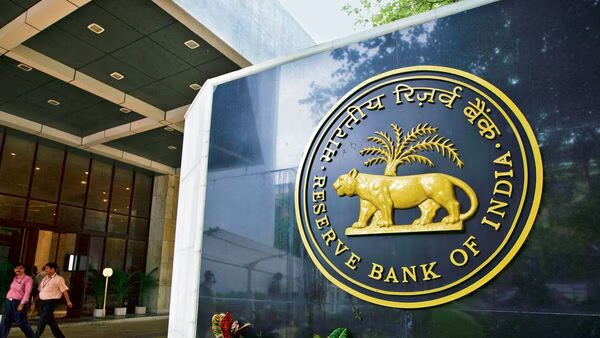In recent years, the Reserve Bank of India (RBI) has faced criticism for its slow responses to lapses within the banking and financial sectors, including banks, Non-Banking Financial Companies (NBFCs), and Asset Management Companies (AMCs). Prompt and stringent action by the RBI is essential to maintain the stability and integrity of the financial system. Delays in addressing violations can lead to severe consequences, including loss of investor confidence, financial instability, and systemic risks.
Recent Lapses and RBI’s Responses
Two recent cases highlight the issues stemming from delayed regulatory action: the Edelweiss Group’s lapses and the troubles faced by various cooperative banks.
Edelweiss Group: Edelweiss, a prominent financial services company, faced regulatory scrutiny due to allegations of improper financial practices. Reports indicated that its Asset Management Company (AMC) engaged in transactions that raised red flags. The slow response from the RBI in investigating and addressing these issues has led to concerns about the efficacy of regulatory oversight in the financial sector.
Cooperative Banks: Cooperative banks, which cater primarily to rural and semi-urban populations, have frequently faced operational and financial mismanagement issues. Notable examples include the Punjab and Maharashtra Cooperative (PMC) Bank crisis and several other smaller cooperative banks across the country. These banks have been plagued by poor governance, lack of transparency, and fraudulent activities. The RBI’s delayed interventions in these cases have exacerbated the crises, leading to significant losses for depositors and stakeholders.
The Need for Stringent and Immediate Action
The RBI’s primary mandate includes ensuring the stability and soundness of the financial system. To fulfill this role effectively, the central bank must adopt a more proactive and stringent approach to regulation and oversight.
1. Protecting Depositors and Investors
One of the fundamental responsibilities of the RBI is to protect the interests of depositors and investors. Delayed action can lead to erosion of confidence among the public. In the case of PMC Bank, for example, delayed intervention allowed the situation to deteriorate, resulting in severe financial losses for thousands of depositors.
2. Preventing Systemic Risks
Financial institutions are interconnected, and issues in one entity can quickly spread to others, creating systemic risks. Prompt regulatory action can contain problems before they escalate. In the case of NBFCs, several companies faced liquidity issues that could have been mitigated with earlier intervention by the RBI, thereby preventing broader market disruptions.
3. Enhancing Market Discipline
Swift and stringent actions serve as a deterrent to potential violators. When financial institutions see that the regulator acts decisively, they are more likely to adhere to regulatory norms and maintain high standards of governance. This can create a healthier financial ecosystem where institutions operate responsibly.
Recommendations for the RBI
To address these challenges and improve its regulatory effectiveness, the RBI should consider implementing the following measures:
1. Strengthening Supervisory Mechanisms
The RBI needs to enhance its supervisory framework to detect and address issues at an early stage. This includes leveraging technology for better monitoring and analysis of financial data. Real-time data analytics can help identify red flags and potential risks promptly.
2. Increasing Transparency and Accountability
The RBI should ensure greater transparency in its regulatory actions. Clear communication about regulatory decisions and the reasons behind them can help build trust among stakeholders. Additionally, holding financial institutions accountable for their actions through timely penalties and corrective measures is crucial.
3. Enhancing Regulatory Collaboration
Collaborating with other regulatory bodies, such as the Securities and Exchange Board of India (SEBI) and the Insurance Regulatory and Development Authority (IRDA), can help in addressing issues that span across different segments of the financial sector. A coordinated approach can lead to more effective regulation and oversight.
4. Implementing Stricter Penalties
The RBI should consider implementing stricter penalties for violations of regulatory norms. Hefty fines and sanctions can act as significant deterrents against non-compliance. In cases of severe misconduct, revoking licenses or mandating management changes should be considered.
5. Focused Training and Capacity Building
Investing in the training and capacity building of regulatory staff is essential. This will ensure that the RBI has a skilled workforce capable of conducting thorough inspections and audits. Continuous professional development and exposure to global best practices can enhance regulatory effectiveness.
The Impact of Proactive Regulation
Banking Sector Stability
Proactive regulation can ensure the stability of the banking sector by preventing crises before they occur. Early detection of financial mismanagement or fraud can save institutions from collapse and protect the broader economy from fallout.
Boosting Investor Confidence
When investors see that the regulator is vigilant and proactive, their confidence in the financial system increases. This can lead to greater investment in the economy, fostering growth and development.
Enhancing India’s Financial Reputation
A robust regulatory environment enhances India’s reputation in global financial markets. It can attract foreign investment and strengthen the country’s position as a reliable and stable financial hub.
Conclusion
The RBI’s role as the custodian of India’s financial system is critical. Ensuring the stability and integrity of the banking and financial sectors requires prompt and stringent regulatory actions. The recent lapses in the Edelweiss Group and cooperative banks underscore the need for the RBI to act swiftly upon noticing violations. By enhancing its supervisory mechanisms, increasing transparency, and implementing stricter penalties, the RBI can protect the interests of depositors and investors, prevent systemic risks, and boost confidence in the financial system. The Modi government, in its third term, should prioritize empowering the RBI to take decisive actions to ensure a robust and resilient financial sector.





